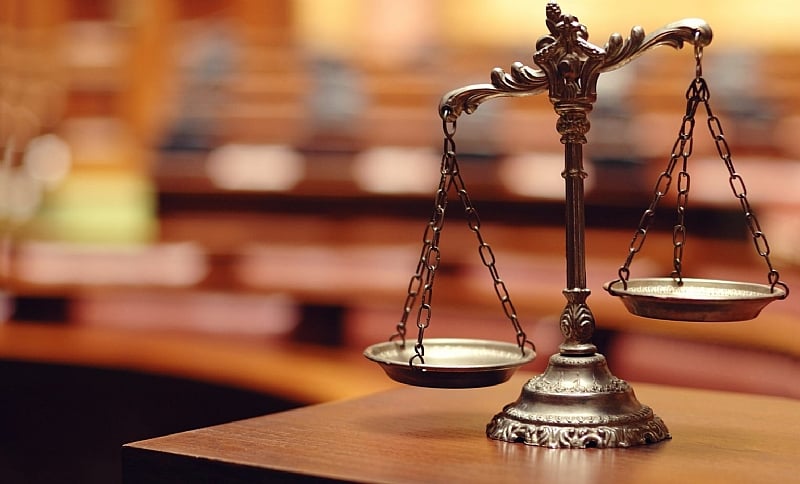This case revolves around two Chinese nationals, Liang Shao Kong and Qin Cal Yun, operating in Obuasi, Ghana, who were arrested and charged with illegal gold trading and money laundering. The Ministry of National Security, acting on intelligence reports, initiated an undercover operation targeting Golden Dream Limited, a company suspected of engaging in unlicensed gold transactions. Posing as gold dealers, undercover agents conducted two separate transactions with the accused, selling a total of 96.22 grams of gold for GHC 109,929.00. Subsequent investigations revealed that Golden Dream Limited had vacated its premises, and another Chinese-owned company, Shengfa Company Limited, occupied the building. A search of Shengfa Company Limited’s premises yielded a substantial amount of gold, weighing 653.20 grams and valued at GHC 280,709.17, along with a significant cash sum of GHC 968,770. This led to the arrest of Liang Shao Kong and Qin Cal Yun.
The accused individuals were initially brought before an Accra High Court where their bail application was denied. However, a subsequent application to the High Court’s Human Rights Division proved successful. The court granted bail to both accused, setting the amount at GHC 500,000 with two sureties, one of whom must provide justification for their surety. The charges against the two individuals include conspiracy to commit a crime, buying and selling minerals without a license, and money laundering. These charges stem from their alleged involvement in unlicensed gold trading activities, which were uncovered through the undercover operation and subsequent search of the business premises.
The prosecution’s case rests on the evidence gathered during the undercover operation, where the accused individuals purchased gold from undercover agents, and the discovery of a substantial amount of gold and cash at the premises of Shengfa Company Limited. The accused admitted to trading in gold but could not produce a license authorizing them to do so, a requirement under Ghanaian law. Furthermore, they confessed to operating without a registered business, conducting their operations from the premises of Shengfa Company Limited. This lack of proper registration and licensing forms a key element of the charges against them.
The defense argued for bail, successfully presenting their case before the Human Rights Division of the High Court. The granting of bail suggests that the court considered the accused individuals to be flight risks and the potential interference with ongoing investigations. The bail conditions, including the substantial financial amount and the requirement of sureties, aim to ensure the accused persons’ appearance in court for subsequent proceedings. The case highlights the challenges faced by authorities in curbing illegal mining and gold trading activities.
This case underscores the importance of regulating the gold trade to prevent illicit activities, protect the environment, and ensure the equitable distribution of revenue from natural resources. Illegal gold mining often leads to environmental degradation, including deforestation, water pollution, and soil erosion. It also deprives the state of much-needed revenue, as taxes and royalties are not paid on illegally mined gold. The government of Ghana has been actively working to combat illegal mining, implementing various policies and initiatives to formalize the sector and curb illicit operations.
The outcome of this case will have significant implications for the ongoing efforts to regulate the gold trade in Ghana. A conviction would serve as a deterrent to others engaged in similar illegal activities, while an acquittal could potentially undermine these efforts. The case also highlights the need for continued vigilance and effective enforcement of existing regulations. Additionally, it emphasizes the importance of international cooperation in combating cross-border criminal activities related to the illegal gold trade. The involvement of Chinese nationals in this case suggests that illegal gold trading networks may extend beyond Ghana’s borders, necessitating collaborative efforts with other countries to address this issue effectively. The trial proceedings will undoubtedly be closely watched by stakeholders in the mining sector and by those concerned about the environmental and economic consequences of illegal mining.














